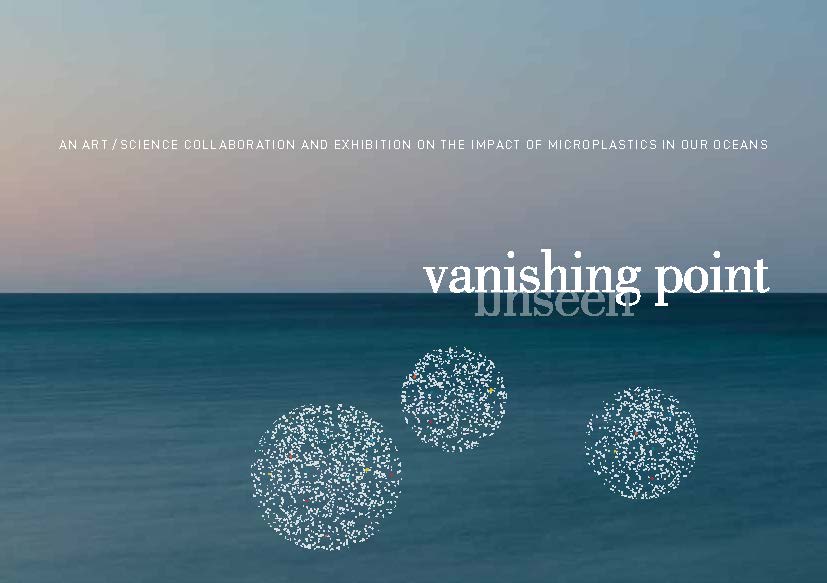
The growing problem of plastic pollution in the world’s oceans will be highlighted in a new exhibition starting at IMAS this week.
Vanishing Point Unseen is the result of a collaboration between scientists and artists and features works in a range of media, including painting, photography, jewellery, woodwork, printmaking and sculpture. The exhibition also includes a series of free public talks each Saturday, starting 7 October.
Following a successful first exhibition in 2015, the new Vanishing Point project focuses on the serious global environmental threat posed by microplastics.
Vanishing Point was established by renowned wildlife artist Katherine Cooper. Mrs Cooper said the aim of the exhibition is to engage viewers through visual beauty and simplicity, leading them through a deeper story to raise awareness of the dangers of plastic in our marine environment.
Biologist Dr Heidi Auman, one of three scientists involved in the exhibition, said the collaboration between scientists and artists sprang from a concern about plastic pollution as well as a shared inquiry-based approach to questioning, understanding and explaining the way things are.
“While plastic pollution on our beaches is obvious, microplastics in the ocean are often invisible.
“Our marine systems and food chains are increasingly being invaded by micro-beads from personal care products, micro-fibres in synthetic clothing, and tiny fragments derived from the breakdown of larger debris.
“By raising awareness of the problem we can work together to find solutions, including simple measures such as reducing our use of plastics and recycling those we do use,” Dr Auman said.
As well as Dr Auman the team behind ‘Vanishing Point’ also includes scientists Dr Frederique Olivier and Associate Professor Patti Virtue, and artists Sophie Carnell, Di Masters, Toby Muir Wilson, Peter Walsh, Gerhard Mausz and Katherine Cooper.
Vanishing Point Unseen opens on Friday 6 October and runs until 25 November, and can be viewed 9am-5pm Monday to Friday in the IMAS Exhibition Space, 20 Castray Esplanade, Hobart.
The first free public talk is on Saturday 7 October at 10am and will be by Dr Denise Hardesty - winner of the 2016 Eureka Prize for Environmental Research. Her talk is titled ‘Our coast, our plastic, our problem, our solution’.